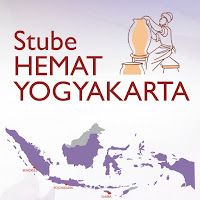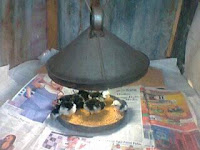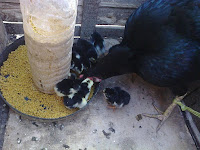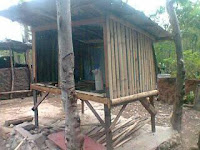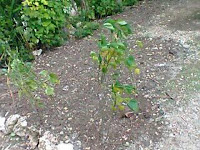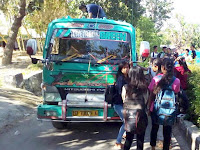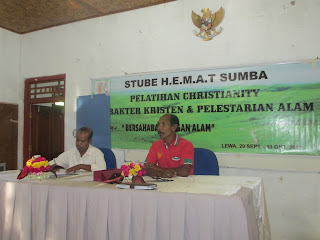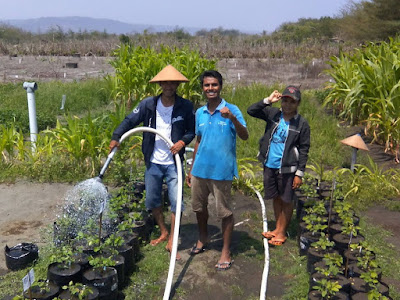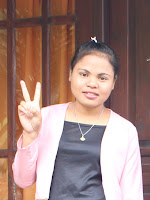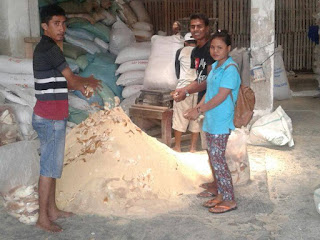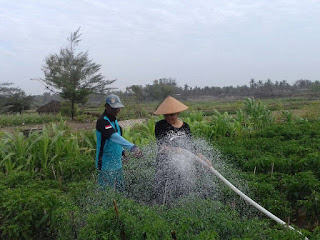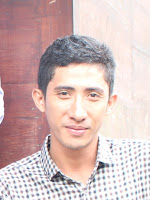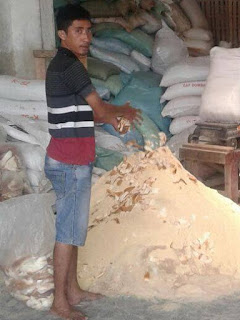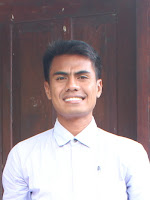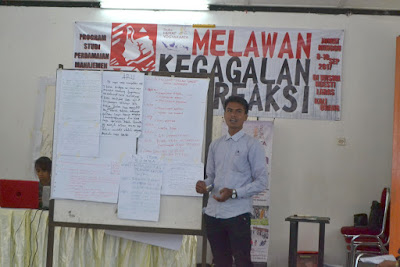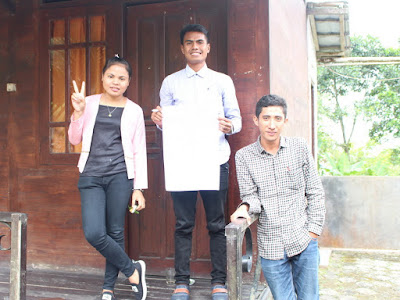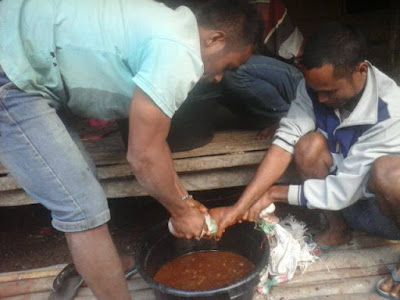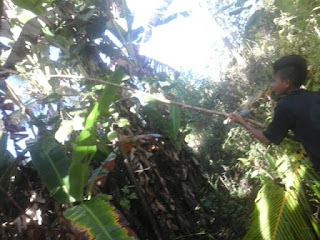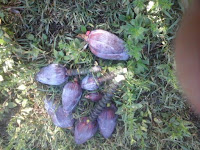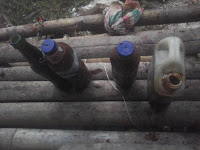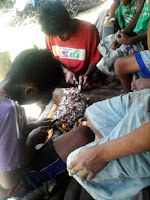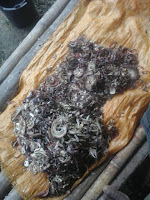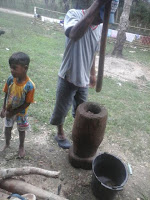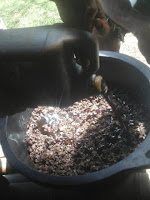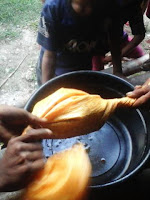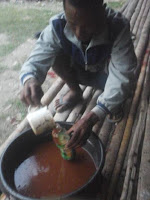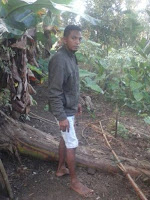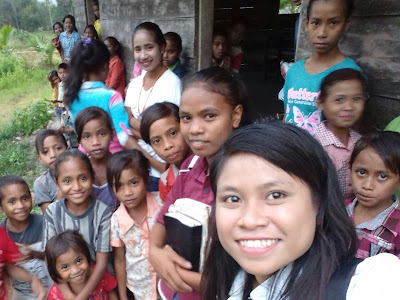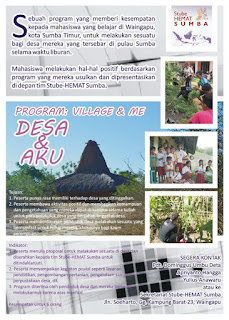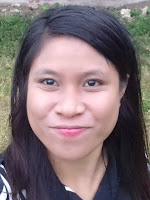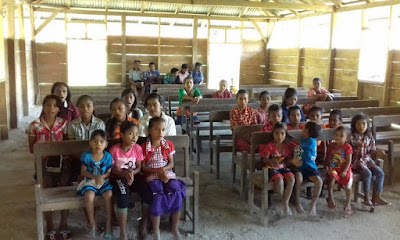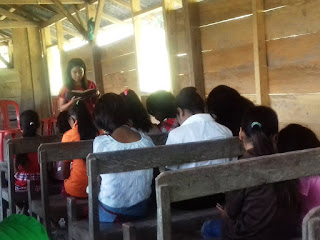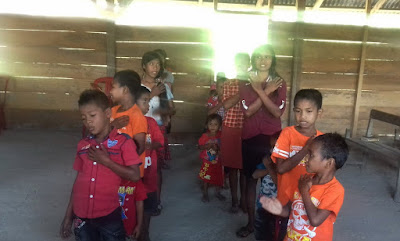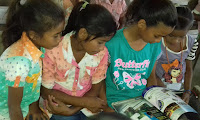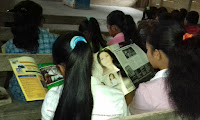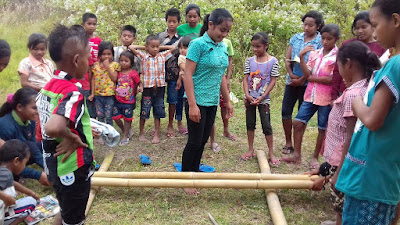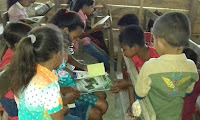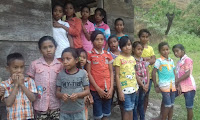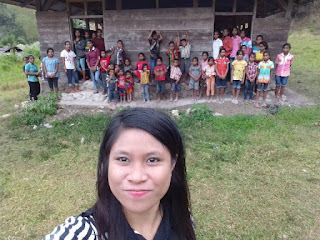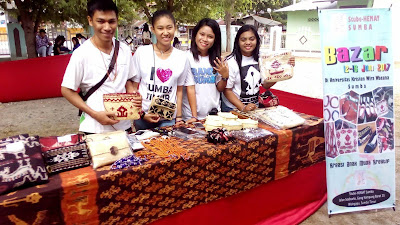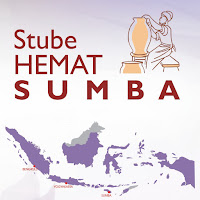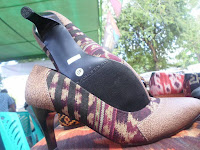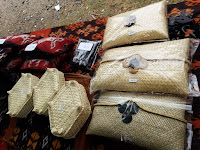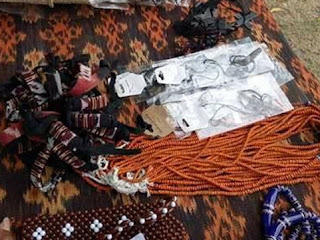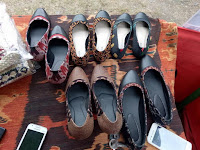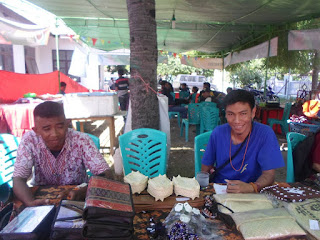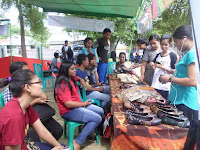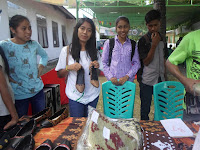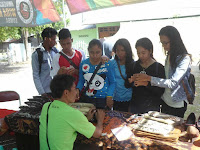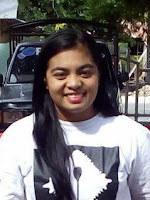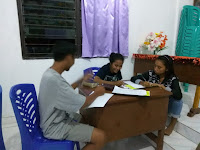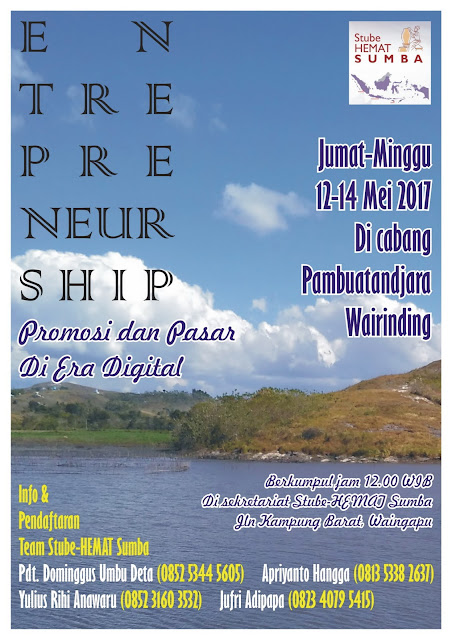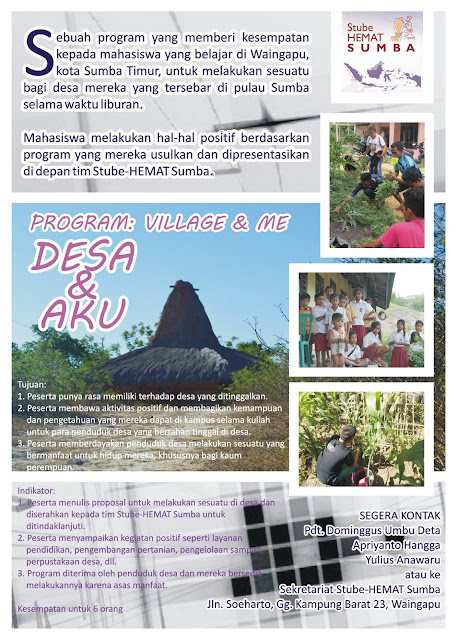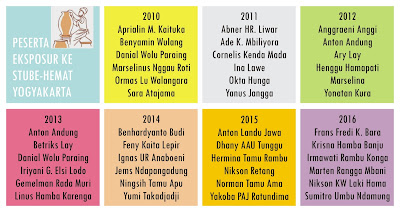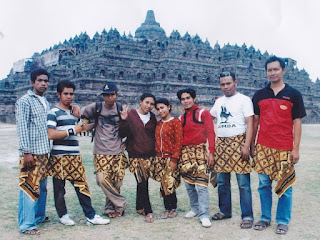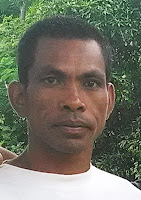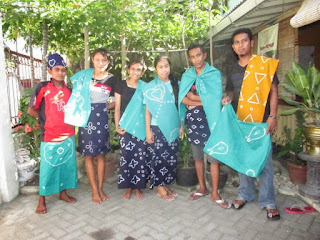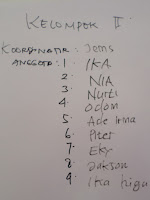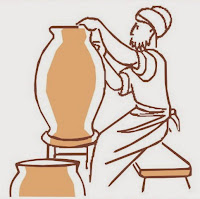 Real works become one indicator that someone has applied his/her knowledge.Knowledge is not just rooted in the head, but should be fruitful for those around him/her. In the period of seven years, starting from 2010 until 2016, Stube HEMAT Sumba has sent 6 students/youth each year to participate in the program of Exposure to Stube HEMAT Yogyakarta for one month. Here are four names of participants who have participated in the program. As time goes, some of them were already working in their places.
Real works become one indicator that someone has applied his/her knowledge.Knowledge is not just rooted in the head, but should be fruitful for those around him/her. In the period of seven years, starting from 2010 until 2016, Stube HEMAT Sumba has sent 6 students/youth each year to participate in the program of Exposure to Stube HEMAT Yogyakarta for one month. Here are four names of participants who have participated in the program. As time goes, some of them were already working in their places. Daniel Wolu Praing was asked to become a teacher at one of the Junior High Schools (SMP) since 2011 to teach local content, about skills. The experience and knowledge he got when following Exposure Stube-HEMAT Yogyakarta in in 2010 is beneficial for his students. He also developed it into a profit business such as making bamboo furniture, kitchen utensils, and party decorations. In addition to teaching at school, Daniel also trains young people who are still unemployed to work and can earn money from their skill by making products from bamboo. His hope is that children know various usages of bamboo except firewood, hedges or plaited bamboo wall.
Daniel Wolu Praing was asked to become a teacher at one of the Junior High Schools (SMP) since 2011 to teach local content, about skills. The experience and knowledge he got when following Exposure Stube-HEMAT Yogyakarta in in 2010 is beneficial for his students. He also developed it into a profit business such as making bamboo furniture, kitchen utensils, and party decorations. In addition to teaching at school, Daniel also trains young people who are still unemployed to work and can earn money from their skill by making products from bamboo. His hope is that children know various usages of bamboo except firewood, hedges or plaited bamboo wall.Oktavianus Umbu Hunga, is commonly called Okta. He returned from Yogya in 2011 andinitiated the establishment of an early age education group called ‘Nazaret’ on Jl. Simpang Kemiri, Lewa, in 2012. It is running well until now. At first there were 20 kidswho came in and out. On the year 2016, there were recorded 41 kids of 3-6 years average agewho joined this play group. Many obstacles and challenges existed, such as prejudice of children abuse to obtain funds and no good response from local authorities. Those above did not discourage him. To finance the project, he worked in building and canal construction project. The money he earned was used for the school’s operational costs. Next, he cooperated with his friends to teach the group. Most of them are only high school graduates, so they do not have enough knowledge about kid’s character. Okta admitted that he still needs facilitator for the school, because there is only one teacher left, who is still a 6th semester student. For those who have ever studied in Yogya, Okta hopes that they developed their knowledge and share it among people in village.
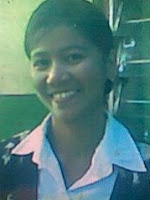 Marselina is a vicar of a church in West Sumba. She said that her experience followingthe Exposure program to Stube HEMAT Yogyakarta in 2012 gave lots of meaning in her life. In Yogyakarta she learned to process food with local ingredients such as cassava and sticky rice into various foods. When returning to Sumba, she practiced what she had learned and shared the knowledge and skills with her friends in campus. From her productive skills, she bought her first mobile phone. As a vicar, her skills to process local food is also used to add the skills of church members, especially women.
Marselina is a vicar of a church in West Sumba. She said that her experience followingthe Exposure program to Stube HEMAT Yogyakarta in 2012 gave lots of meaning in her life. In Yogyakarta she learned to process food with local ingredients such as cassava and sticky rice into various foods. When returning to Sumba, she practiced what she had learned and shared the knowledge and skills with her friends in campus. From her productive skills, she bought her first mobile phone. As a vicar, her skills to process local food is also used to add the skills of church members, especially women.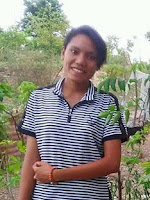 Ningsih is a member of the women's farmer group in Wangga village called Rinjung Pahamu. Although she lives 5 kms away from Wangga and must walk on foot to reach the group, her spirit is not receded to join andto learn farming in the group. The opportunity to learn agriculture in Yogyakarta in 2014 became a good opportunity for her. Her experience was practiced in Rinjung Pahamu farmer group, and the results were seen during the onion harvest. From 50 kg of onion seeds, the group canharvest 150 kgs of onion. Currently Ningsih has an opportunity to continue her study to take a diploma at Waingapu State Community Academy (AKN).
Ningsih is a member of the women's farmer group in Wangga village called Rinjung Pahamu. Although she lives 5 kms away from Wangga and must walk on foot to reach the group, her spirit is not receded to join andto learn farming in the group. The opportunity to learn agriculture in Yogyakarta in 2014 became a good opportunity for her. Her experience was practiced in Rinjung Pahamu farmer group, and the results were seen during the onion harvest. From 50 kg of onion seeds, the group canharvest 150 kgs of onion. Currently Ningsih has an opportunity to continue her study to take a diploma at Waingapu State Community Academy (AKN).Actually, there are many other stories of young people workingfor the surrounding and want to work and be useful as well. The four young people above become simple examples how startworking with inner strength and good motivation. Keep giving good impact as time goes on. (ITM).













